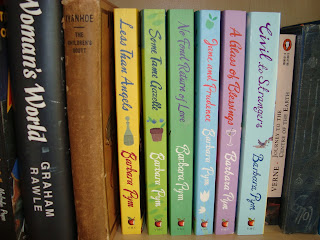I have found a plot, I believe, and a new desire to see it through. My concern now is what era should it be placed in? Should it be shoe-horned into a certain time, or should it be set in it's original time? I am following a true literary tradition and am going to steal a classical story, as the greats have done before me. And why indeed should I not?
But can a nymph be placed in an office? Can a god be a financier? I think so, if I am writing a bog standard love story, which I think I am. It is a starting point and I am entirely untrained. Not to say that romantic fiction is a lower genre - I do not believe that it is. I feel that everything has its own place, and if a book is enjoyed, then it is as relevant and important as anything else. It just perhaps does not have the polish of Middlemarch.
And does a good story have to be a shining example of word craft? Agatha Christie's work is not high literature - nor indeed are the plots particularly great - but they are so readable. I have been devouring a number of hers recently, and the best by far was The Murder of Roger Ackroyd. I finished At Bertram's Hotel last night, and quite frankly it left me a little non-plussed. But I did enjoy reading it.
I believe that I shall set aside my aspirations for a work that will set me to immortality, and just write something that can be published, read and enjoyed.




